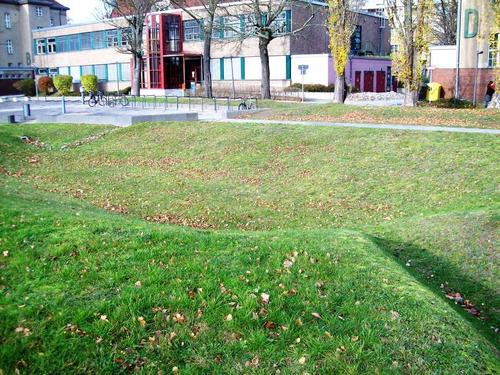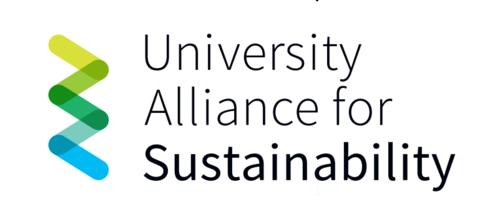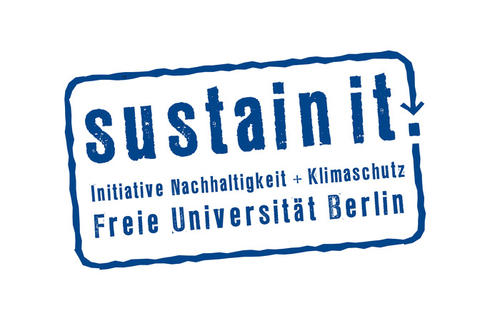Water
Having introduced a water management system, Freie Universität Berlin reduced its water consumption by around a third within five years (between 2004 and 2009) - to approximately 200,000 cubic metres per year. Technical optimisations by the Technical Department, for example the conversion of cooling systems or the use of water-saving fittings, made a decisive contribution to these savings. Consumption was more or less stable until 2014; since then, however, it has risen again significantly, partly due to an increase in floor space and the commissioning of a research-intensive laboratory building.
Furthermore, Freie Universität Berlin has built special infiltration and cistern systems at various locations - for example, on the geosciences campus in Lankwitz or at the new building for small departments with an integrated campus library - so that the precipitation water can seep into the ground or be collected and used for watering the green spaces on campus. The costs for water use and disposal, including rainwater levy, amounted to 1.2 million euros in 2020.
Wastewater or sewage from Freie Universität Berlin is discharged into the sewage system of Berliner Wasserbetriebe in accordance with legal requirements. The highest proportion of this is sanitary wastewater. Drinking water used for various cooling purposes is also fed into the sewage system. The smallest proportion of wastewater is probably laboratory wastewater, which is subject to special requirements. For these, it must be ensured that they comply with the discharge regulations. For this purpose, own sewage treatment plants or neutralisation plants are used as close as possible to the producers. The discharge is regularly monitored by sampling in accordance with regulations. Where necessary, light liquid separators or grease separators are also used to clean the waste water from harmful substances.





